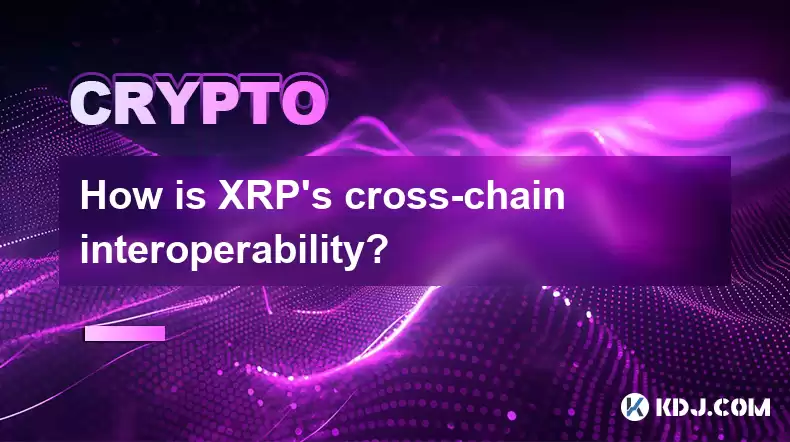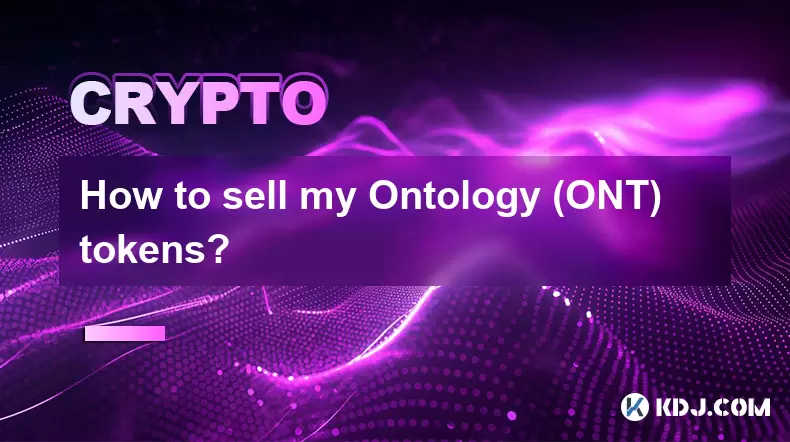-
 Bitcoin
Bitcoin $116400
-0.36% -
 Ethereum
Ethereum $4033
3.40% -
 XRP
XRP $3.302
-1.26% -
 Tether USDt
Tether USDt $1.000
-0.02% -
 BNB
BNB $796.1
1.67% -
 Solana
Solana $177.8
1.89% -
 USDC
USDC $0.9999
0.00% -
 Dogecoin
Dogecoin $0.2314
4.09% -
 TRON
TRON $0.3381
0.14% -
 Cardano
Cardano $0.7989
1.22% -
 Stellar
Stellar $0.4496
-1.84% -
 Chainlink
Chainlink $20.42
9.42% -
 Hyperliquid
Hyperliquid $41.17
0.88% -
 Sui
Sui $3.914
3.77% -
 Bitcoin Cash
Bitcoin Cash $584.7
1.52% -
 Hedera
Hedera $0.2632
-0.54% -
 Avalanche
Avalanche $24.09
3.40% -
 Ethena USDe
Ethena USDe $1.001
-0.02% -
 Litecoin
Litecoin $123.2
1.33% -
 Toncoin
Toncoin $3.318
-0.04% -
 UNUS SED LEO
UNUS SED LEO $8.984
-0.05% -
 Shiba Inu
Shiba Inu $0.00001323
2.85% -
 Uniswap
Uniswap $10.90
4.41% -
 Polkadot
Polkadot $3.999
3.34% -
 Dai
Dai $1.000
0.01% -
 Cronos
Cronos $0.1630
9.64% -
 Bitget Token
Bitget Token $4.484
0.82% -
 Monero
Monero $272.4
2.44% -
 Pepe
Pepe $0.00001173
6.03% -
 Aave
Aave $290.8
2.88%
How is XRP's cross-chain interoperability?
XRP Ledger's native design facilitates cross-chain communication via gateways, offering fast, low-cost transactions, though centralization of some gateways remains a concern. Ongoing development aims to improve decentralization and security.
Mar 03, 2025 at 01:07 pm

Key Points:
- XRP Ledger's native design facilitates cross-chain communication, unlike many blockchains requiring bridges.
- Interoperability is achieved through the XRP Ledger's unique architecture and its robust ecosystem of tools and protocols.
- While direct cross-chain transactions aren't always seamless, various methods like gateways and bridges enhance XRP's interoperability.
- Limitations exist, particularly regarding the level of decentralization and security in some bridging solutions.
- Ongoing developments and partnerships aim to improve XRP's cross-chain capabilities further.
How is XRP's Cross-Chain Interoperability?
XRP, the native cryptocurrency of the XRP Ledger (XRPL), boasts a unique approach to cross-chain interoperability. Unlike many blockchains that rely on complex bridging solutions, the XRPL's design inherently promotes communication between different blockchain networks. This is achieved through a combination of its native features and a thriving ecosystem of tools and protocols built around it.
The XRPL's architecture differs significantly from blockchains that use smart contracts extensively for interoperability. Instead, it leverages a trust-minimized, consensus-based system that enables rapid transaction settlement and facilitates connections to other networks through intermediaries known as gateways. These gateways act as bridges, converting XRP to and from other cryptocurrencies on different blockchains.
These gateways play a crucial role in XRP's cross-chain functionality. They are essentially entities that manage the exchange of value between the XRPL and other blockchain networks. For example, a gateway might facilitate the conversion of Bitcoin (BTC) to XRP on the XRPL, allowing users to transfer value between these two distinct systems. The process is generally straightforward, involving sending BTC to the gateway, which then issues an equivalent amount of XRP on the XRPL.
However, the reliance on gateways introduces considerations regarding centralization and trust. While the XRPL itself is decentralized, the gateways are often operated by centralized entities. This means users need to trust the gateway operators to handle their funds correctly and efficiently. This aspect is a key point of discussion surrounding XRP's cross-chain capabilities.
Several methods enhance cross-chain transfer capabilities beyond simple gateway mechanisms. For example, the XRPL's ability to handle custom assets allows the creation of tokens representing assets from other chains. This enables a form of tokenized representation, facilitating interactions with the XRPL ecosystem.
The implementation of Interledger Protocol (ILP) further expands XRPL's interoperability. ILP is a payment protocol designed to facilitate transfers of value across various networks. By integrating with ILP, the XRPL gains the ability to connect to a wider range of blockchains and payment systems, significantly boosting its cross-chain potential.
While the XRPL's inherent design and associated protocols provide robust cross-chain capabilities, it's important to acknowledge limitations. The dependence on gateways for many cross-chain transfers introduces potential security and trust risks. The decentralization of these gateway operations is a crucial factor that continues to evolve.
The speed and cost-effectiveness of XRP transactions contribute to its appeal in cross-chain scenarios. Compared to some slower and more expensive cross-chain solutions, XRP's fast transaction times and low fees make it a potentially attractive option for facilitating transfers between networks.
Furthermore, Ripple, the company behind XRP, is actively involved in developing and expanding the XRPL's cross-chain capabilities. Through strategic partnerships and technological advancements, Ripple aims to improve the efficiency, security, and decentralization of cross-chain transfers involving XRP.
The ongoing development of XRPL's technology and the expanding network of gateways are key indicators of future improvements in cross-chain interoperability. This continuous evolution is likely to address some of the current limitations and solidify XRP's position as a facilitator of cross-chain transactions.
Frequently Asked Questions:
Q: Is XRP truly decentralized in its cross-chain interactions?
A: The XRPL itself is decentralized, but the gateways used for many cross-chain transactions are often operated by centralized entities. This introduces a degree of centralization into the cross-chain process.
Q: How secure are cross-chain transactions involving XRP?
A: The security of cross-chain transactions involving XRP depends largely on the security of the gateways used. While the XRPL itself is secure, vulnerabilities in gateway operations could compromise the security of transactions.
Q: What are the advantages of using XRP for cross-chain transfers?
A: XRP offers advantages such as fast transaction speeds and low fees compared to some other cross-chain solutions. Its native design also promotes more efficient cross-chain communication than many blockchain networks.
Q: What are the limitations of XRP's cross-chain interoperability?
A: The main limitations stem from the reliance on centralized gateways for many cross-chain transactions, which raises concerns about security and decentralization. The scope of supported networks is also a factor.
Q: How does XRP compare to other cross-chain solutions?
A: XRP's approach differs significantly from solutions relying heavily on smart contracts or other complex bridging mechanisms. Its unique design and gateway system offer advantages in terms of speed and efficiency, but also introduces potential centralization concerns.
Disclaimer:info@kdj.com
The information provided is not trading advice. kdj.com does not assume any responsibility for any investments made based on the information provided in this article. Cryptocurrencies are highly volatile and it is highly recommended that you invest with caution after thorough research!
If you believe that the content used on this website infringes your copyright, please contact us immediately (info@kdj.com) and we will delete it promptly.
- Shiba Inu (SHIB) in the Crypto Landscape: Community, Trends, and Future Outlook
- 2025-08-09 20:30:12
- Lasers in Modern Warfare: Iron Beam and the Future of Defense
- 2025-08-09 20:30:12
- Maxi Doge Presale: The Meme Coin That's Pumping Iron and Prices!
- 2025-08-09 19:10:11
- Rare Coin Warning: Don't Get Fooled by That 1p Coin!
- 2025-08-09 18:50:12
- Cardano, Unilabs, and Tron Price: Decoding the Latest Crypto Buzz
- 2025-08-09 18:30:12
- Aerodrome Finance: Price Targets and the Bullish Channel - What's Next?
- 2025-08-09 18:50:12
Related knowledge

Where can I buy UMA (UMA)?
Aug 07,2025 at 06:42pm
Understanding UMA and Its Role in Decentralized FinanceUMA (Universal Market Access) is an Ethereum-based decentralized finance (DeFi) protocol design...

How to buy Storj (STORJ) tokens?
Aug 09,2025 at 07:28am
Understanding Storj (STORJ) and Its Role in Decentralized StorageStorj is a decentralized cloud storage platform that leverages blockchain technology ...

What is the best app to buy Nano (NANO)?
Aug 09,2025 at 03:35am
Understanding Nano (NANO) and Its Unique FeaturesNano is a feeless, instant cryptocurrency designed for fast peer-to-peer transactions. Unlike many ot...

Where can I purchase Siacoin (SC)?
Aug 08,2025 at 11:14am
Understanding Siacoin (SC) and Its Role in the Sia NetworkSiacoin (SC) is the native cryptocurrency of the Sia decentralized cloud storage platform, a...

How to sell my Ontology (ONT) tokens?
Aug 09,2025 at 06:08pm
Understanding Ontology (ONT) and Its Trading EcosystemBefore selling your Ontology (ONT) tokens, it's essential to understand the nature of the crypto...

Where can I buy OMG Network (OMG)?
Aug 08,2025 at 12:57pm
Understanding OMG Network (OMG) and Its PurposeThe OMG Network, originally known as OmiseGO, is a layer-2 scaling solution built on the Ethereum block...

Where can I buy UMA (UMA)?
Aug 07,2025 at 06:42pm
Understanding UMA and Its Role in Decentralized FinanceUMA (Universal Market Access) is an Ethereum-based decentralized finance (DeFi) protocol design...

How to buy Storj (STORJ) tokens?
Aug 09,2025 at 07:28am
Understanding Storj (STORJ) and Its Role in Decentralized StorageStorj is a decentralized cloud storage platform that leverages blockchain technology ...

What is the best app to buy Nano (NANO)?
Aug 09,2025 at 03:35am
Understanding Nano (NANO) and Its Unique FeaturesNano is a feeless, instant cryptocurrency designed for fast peer-to-peer transactions. Unlike many ot...

Where can I purchase Siacoin (SC)?
Aug 08,2025 at 11:14am
Understanding Siacoin (SC) and Its Role in the Sia NetworkSiacoin (SC) is the native cryptocurrency of the Sia decentralized cloud storage platform, a...

How to sell my Ontology (ONT) tokens?
Aug 09,2025 at 06:08pm
Understanding Ontology (ONT) and Its Trading EcosystemBefore selling your Ontology (ONT) tokens, it's essential to understand the nature of the crypto...

Where can I buy OMG Network (OMG)?
Aug 08,2025 at 12:57pm
Understanding OMG Network (OMG) and Its PurposeThe OMG Network, originally known as OmiseGO, is a layer-2 scaling solution built on the Ethereum block...
See all articles

























































































